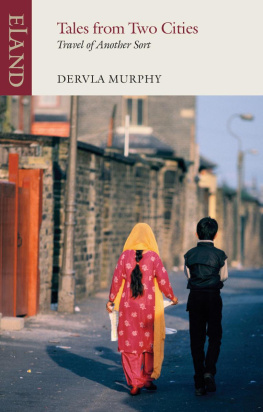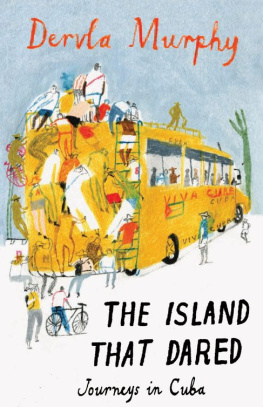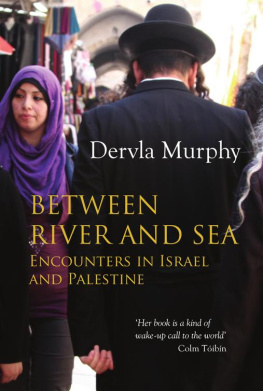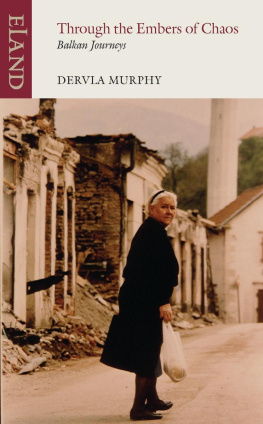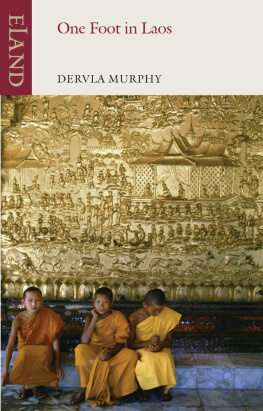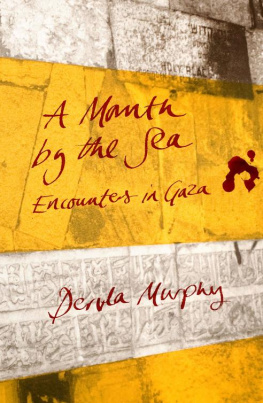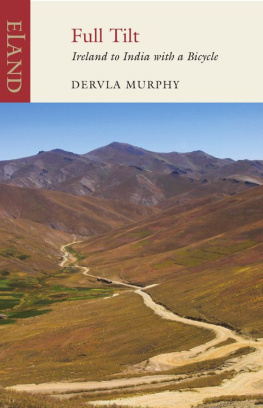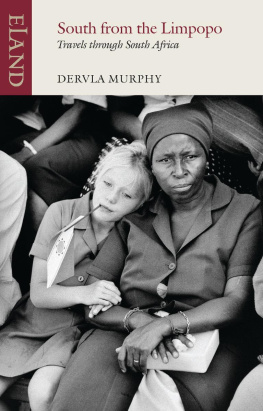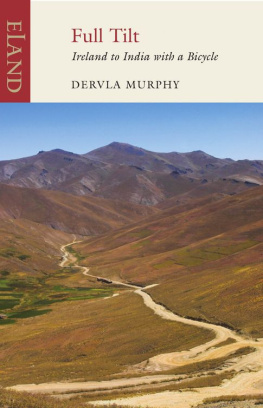Dervla Murphy - Visiting Rwanda
Here you can read online Dervla Murphy - Visiting Rwanda full text of the book (entire story) in english for free. Download pdf and epub, get meaning, cover and reviews about this ebook. year: 2013, publisher: The Lilliput Press, genre: Detective and thriller. Description of the work, (preface) as well as reviews are available. Best literature library LitArk.com created for fans of good reading and offers a wide selection of genres:
Romance novel
Science fiction
Adventure
Detective
Science
History
Home and family
Prose
Art
Politics
Computer
Non-fiction
Religion
Business
Children
Humor
Choose a favorite category and find really read worthwhile books. Enjoy immersion in the world of imagination, feel the emotions of the characters or learn something new for yourself, make an fascinating discovery.

- Book:Visiting Rwanda
- Author:
- Publisher:The Lilliput Press
- Genre:
- Year:2013
- Rating:3 / 5
- Favourites:Add to favourites
- Your mark:
- 60
- 1
- 2
- 3
- 4
- 5
Visiting Rwanda: summary, description and annotation
We offer to read an annotation, description, summary or preface (depends on what the author of the book "Visiting Rwanda" wrote himself). If you haven't found the necessary information about the book — write in the comments, we will try to find it.
Visiting Rwanda — read online for free the complete book (whole text) full work
Below is the text of the book, divided by pages. System saving the place of the last page read, allows you to conveniently read the book "Visiting Rwanda" online for free, without having to search again every time where you left off. Put a bookmark, and you can go to the page where you finished reading at any time.
Font size:
Interval:
Bookmark:
VISITING RWANDA
Dervla Murphy
THE LILLIPUT PRESS
DUBLIN
for Clodagh
Acknowledgments
Without the advice and support of John Walton my Rwanda visit might never have happened. His colleagues in Kigali offered generous hospitality. So did various NGO workers throughout Rwanda, but they would prefer not to be named. To my first grand-daughter, Rose, a special debt of gratitude is owed; she started the whole thing by migrating to Zaire at the age of three months. On another plane, an equal debt of gratitude is owed to Antony Farrell of the Lilliput Press.
Chronology
1885
German Empire given responsibility for Rwanda-Burundi region at Berlin Conference.
1899
Germans set up civil administration.
1916
Belgian troops arrive as Germans withdraw.
1919
Treaty of Versailles entrusts region to Belgium as mandated territory.
1946
League of Nations mandate replaced by United Nations Trusteeship.
1957
The Hutu Manifesto demands independence from both the Belgians and the Tutsi monarchy which since 1931 has collaborated with Belgians.
1959
After death of Mwami (King) Mutara III, some 100,000 Tutsi are killed in a revolt against Tutsi rule and more than 200,000 flee into exile.
1961
The Hutu majority seizes power, abolishes the monarchy and proclaims a republic, recognized by Belgium. Rwanda and Burundi become separate states.
1962
Gregoire Kayibanda becomes first president of the independent Hutu republic and restricts his government to Hutus.
1965
The ruling party, PARMEHUTU, obtains 97% in a general election and Rwanda is declared a one-party state.
1973
In a non-violent coup, Juvenal Habyarimana overcomes Kayibanda who soon after dies in jail.
1975
The MRND, Habyarimanas party, replaces PARMEHUTU as single ruling party.
1986
Rwandan (Mainly Tutsi) refugees contribute significantly to the victory in Uganda of Musevenis army.
1988
In Washington a gathering of Rwandan refugees from all over the world endorse their unconditional repatriation as the only possible solution to their problems.
1990
Fred Rwigyema, formerly a Tutsi major general in Musevenis army, leads an invasion of Rwanda from Uganda on 30 September. French, Belgian and Zairean troops help to repulse invasion.
1991
Another invasion from Uganda is repulsed in January. On June 8 Habyarimana promises constitutional reform and a multi-party system.
1992
A transitional government is formed in April to hold power until the 1995 multi-party elections agreed to by MRND, who later reject agreement. This government never took power.
1993
Three-year war ends when Habyarimana signs Peace Accord with RPF in Anusha, Tanzania, on 4 August. In June, Melchior Ndadaye wins Burundis presidential election and becomes the first Hutu president. In October his assassination by Tutsi officers in a military coup provokes extreme violence.
1994
5 April UNAMIRs mandate extended to 29 July by the Security Council. Next day Habyarimana and President Cyprien Ntariyamira of Burundi die together in a plane crash and the genocide starts in Kigali.
9 April Belgian and French paratroopers arrive in Kigali to rescue expatriates.
12 April Government forces and RPA begin the battle for Kigali. Throughout the country thousands of Tutsi are being massacred every day.
21 April UNAMIR troops reduced from 2500 to 270 by Security Council Resolution 912.
17 May Over half a million Tutsi have been slaughtered. Security Council Resolution 918 calls for the end of the massacres and increases the Blue Helmets to 5500 (UNAMIR II)
17 June Numbers of victims has risen to three-quarters of a million. A French initiative for humanitarian intervention approved by Boutros Boutros-Ghali.
30 June Massacres described as genocide by UN Human Rights Commission Special Rapporteur, in a detailed report.
1 July UN Security Council Resolution 935 calls for the setting up of a committee of impartial experts to investigate the evidence for possible acts of genocide.
4 July RPF forces capture Kigali.
14 July RPF forces take Ruhengeri, the main town in northern Rwanda, and tens of thousands of refugees flee over the border into Zaire.
17 July RPF forces capture Habyarimanas last bastion, Gisenyi.
18 July The end of the war is declared and the RPF install a new government of national unity with a Hutu President and Hutu Prime Minister.
Glossary
Akazu : The inner circle of government who wielded most power during Habyarimanas presidency.
askari : East African soldier or policeman, a term now used in Frances ex-colonies to describe privately employed security guard.
burgomaster : a communes chief administrative officer appointed by the central government.
cellule : a group of ten or so rural house-holds: the smallest unit in a commune.
commune : thousands of homesteads scattered over adjacent hills.
Interahamwe : a civilian militia recruited to help implement genocide.
Indaba : a conference or serious debate, usually involving the elders of a community.
injara : Ethiopian bread made with ???? flour.
matatu : minibus taxi.
muzungu : white person.
rugo : peasant homestead: one or more huts usually enclosed by a fence.
umuganda : free labour demanded by the state (previously by kings or chiefs) as a form of tax.
wat : Ethiopian spicy sauce.
Acronyms
CIA : Central Intelligence Agency
EU : European Union
FAR : Rwandan armed forces pre-genocide
IMF : Internally displaced person
MAF : Missionary Aviation Fellowship
MRND : Mouvement Rvalutionnaire National pour le Dveloppement, founded by president Habyarimana: the only political party permitted under his rule.
MSF : Medicine Sans Frontires
NGO : Non-governmental organization: e.g., Concern, Oxfam, Medicine Sans Frontires, Christian Aid.
OAU : Organization of African Unity
RMC : Radio Milles Collines, a private radio station used to incite hatred of the Tutsi.
RPA : Rwandan Patriotic Army
RPF : Rwandan Patriotic Front
SAP : Structural Adjustment Programme: a spending restriction placed by the IMF on countries indebted to it.
UNHCR : United Nations High Commission for Refugees
UNAMIR : United Nations Assistance Mission to Rwanda
WB : World Bank
WFP : World Food Programme
Prologue
Throughout April and May 1994 I was in South Africa, completely absorbed in that countrys affairs, and I scarcely registered Rwandas genocide while it was happening. Then, my knowledge of Rwanda could have been written on a postcard. I knew only that it had the highest population density in mainland Africa (some 7.15 million occupying a territory about the size of Wales), that it was very beautiful, mainly dependent on agriculture and terrifyingly prone to lethal conflicts between the fifteen per cent Tutsi minority for centuries the ruling lite and the Hutu majority. I remembered too that in 1961, after the massacring of many Tutsi, the Hutu gained power as the Belgian rulers prepared to leave their grossly mistreated colony to its own sanguinary devices. Also, during a 1992 cycle ride from Kenya to Zimbabwe, I met a few of the Tutsi who had settled in Uganda as refugees in 1959 and subsequent years. From then I learned that between 62 and 67 certain Tutsi factions had tried to fight their way back to Rwanda but were always defeated. These incursions provoked reprisals, usually government-organised, against Tutsi still living in Rwanda. During the 60s some 20,000 were killed and hundreds of thousands fled to neighbouring countries: Burundi, Uganda, Zaire and Tanzania.
In April 1995, a year after the genocide began, I suddenly had a personal reason to focus on Rwanda. My daughter Rachel, then two months pregnant, and her partner Andrew, were moving to Kigali where Andrew was to spend six months attached to a UNHCR team. (They first met in Mozambique when working as UN volunteers with a unit established to disarm the opposing armies in preparation for the elections of November 1994. On their return from Kigali in October, they came to stay with me and I expected graphic accounts of life in post-genocide Rwanda; normally both enjoy describing their travels and analysing regional problems. But this time they had strangely little to say. Almost nothing, in fact; their faces closed if anyone asked about their impressions of and experiences in Rwanda. This silence was in itself disturbingly eloquent and when they lent me two books I fully understood it.
Next pageFont size:
Interval:
Bookmark:
Similar books «Visiting Rwanda»
Look at similar books to Visiting Rwanda. We have selected literature similar in name and meaning in the hope of providing readers with more options to find new, interesting, not yet read works.
Discussion, reviews of the book Visiting Rwanda and just readers' own opinions. Leave your comments, write what you think about the work, its meaning or the main characters. Specify what exactly you liked and what you didn't like, and why you think so.

